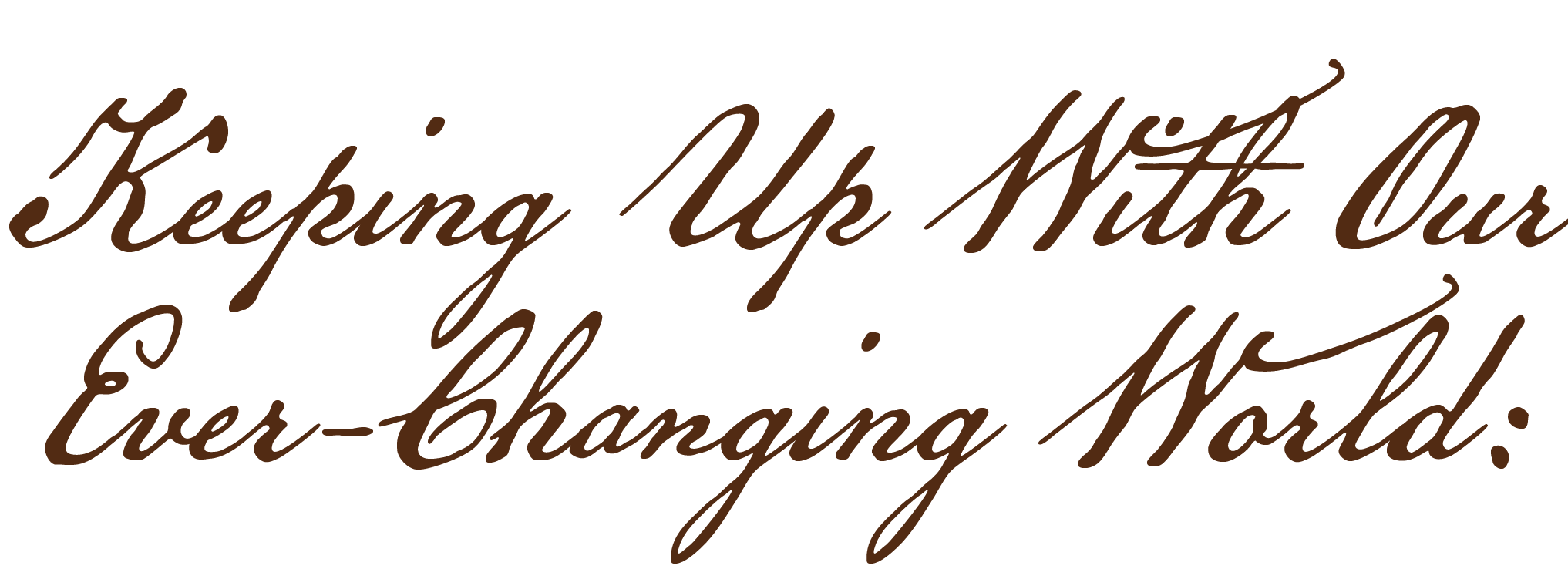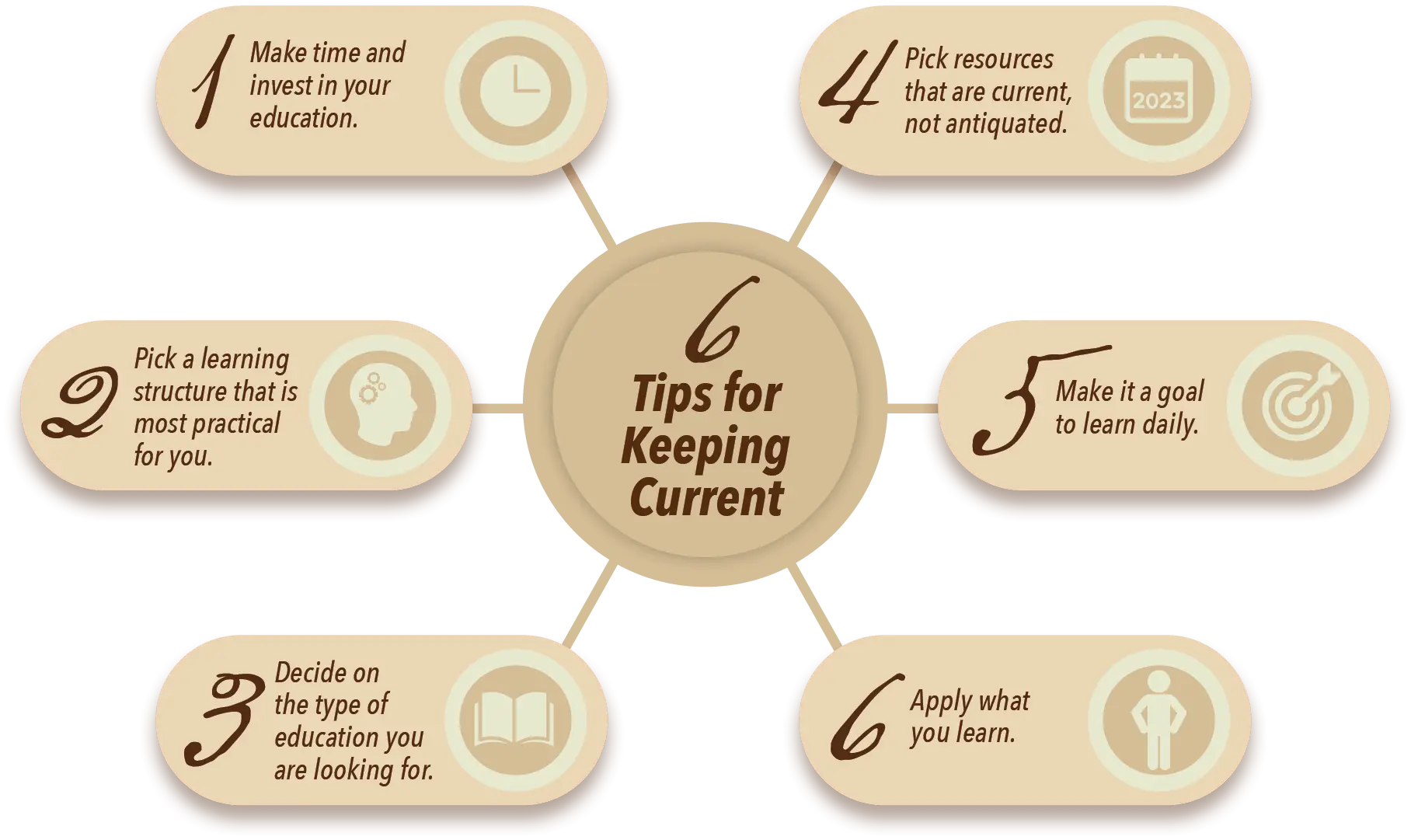

 any people like to proudly discuss the years of “experience” they have in their field. But does this mean that their 20 years of experience is equivalent to 20 years of learning, or simply one year repeated 20 times?
any people like to proudly discuss the years of “experience” they have in their field. But does this mean that their 20 years of experience is equivalent to 20 years of learning, or simply one year repeated 20 times?
Age and wisdom don’t automatically coincide. To stay at the top of our game, we must continuously learn. And I always say that a good day is when I learn something new!
When I graduated from veterinary school 35 years ago, they presumed that our veterinary knowledge would turn over every five years. This meant that if you were not updating your knowledge on a consistent basis, you would be antiquated in five years. More recently though, they have figured that our knowledge turns over every two years. Due to this new finding, we are now required to take anywhere from 10-20 hours a year of education (this varies across states) to be able to renew our state veterinary licenses.
Updated research, new treatment options, and innovative ideas are constantly challenging and evolving the old way of thinking-and it is no different in other industries (including the grooming industry), some just turn over faster than others. However, medicine and technology are the areas that are constantly advancing. Just think about the computer or the phone that you were using five years ago versus today.
So, how do we keep up and stay current? First, it must be made a priority. We all have busy lives and work hard to make a living, which often doesn’t leave much time for continuous education and attending tradeshows. The only way to stay current is by making time. Second, you must be willing to make the investment of not only time (often away from business), but also of money. Third, you must be able to accept ideas and implement them into your skillset. Knowledge is worthless unless you apply it.
Personally, I always get rejuvenated by participating in events and listening to the latest information because it gives me the ability to offer more to my clients. I have found that any money that I have put towards education has been sufficiently justified by the advancement in my knowledge. I consider education a key investment in my future because I have more to offer to my clients.
But is all education beneficial? Absolutely not! When looking for education options, you need to choose your sources well. If the information taught is primitive and outdated, it is of no benefit to you. If your time is limited, why would you want to waste it on something that is not current?

Education—especially in the scientific world—comes in different forms. I classify it in three different categories: academic based, research based and clinical based. Academic would be like attending college; you learn all the theory and all the correct classifications, but it usually lacks in day-to-day practicality. I can learn the anatomy of a dog or all the layers of the skin but I am not always taught how to apply the knowledge. Most practical learning is not done during college. It is applied when you establish a career.
Research-based education is when a researcher looks at a small part of the picture to see its effects. The problem with this is, in most cases, the big picture is not given. For example, research says that colloidal oatmeal can be soothing and moisturizing. This is wonderful, but when we mix oatmeal with detergents and other chemicals, the research doesn’t tell us how they interact and results can be skewed. Colloidal oatmeal in a harsh shampoo means we still have a harsh shampoo. If the research was the complete answer to the problem, then any shampoo with oatmeal in it would be soothing and moisturizing. There are many different oatmeal shampoos, but do they all yield the same results? As professionals, we must take what we learn in research and efficiently apply it in our field. But how do you do that if you are in the beginning stages of learning?
The last type of education, and the one I prefer, is the clinical type. This means, if you attend a tradeshow or read an article over the weekend, you will be able to take the knowledge home and start implementing it Monday morning. I found that my time was limited in practice, so I wanted to be as judicious as possible. The other types of learning are enjoyable, but not always the best use of my time. It really boils down to what you prefer. It is important to research or get feedback on how the course is structured to know if it will suit your needs.
Staying current is not something that just happens. It takes action and dedication. The further we fall behind, the harder it is to catch up. Make it a priority to find quality resources and dedicate a few hours a week (or day) or one tradeshow a year to keep yourself up to date. Just never stop learning!
Dr. Cliff Faver graduated with a BS in Biology/BA in Chemistry before getting a Veterinary degree in 1987. He is the past owner of Animal Health Services in Cave Creek, Arizona and now the US distributor for Iv San Bernard products, teaches the ISB Pet Aesthetician Certification program, and speaks internationally on hair and skin. His passion is to merge groomers and veterinarians to aid in helping and healing pets. He is also a member of AVMA, AAHA, AZVMA, Board member with Burbank Kennel Club, and has served on Novartis Lead Committee, Hill’s International Global Veterinary Board, and a Veterinary Management Group.